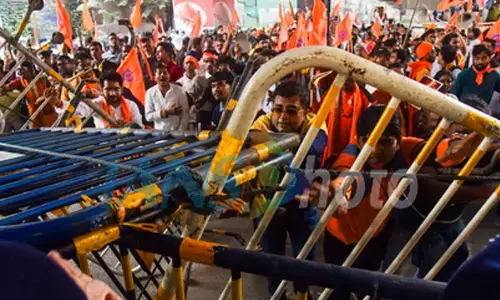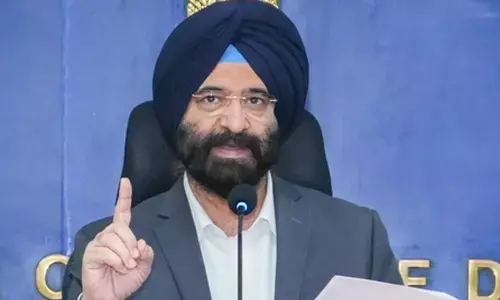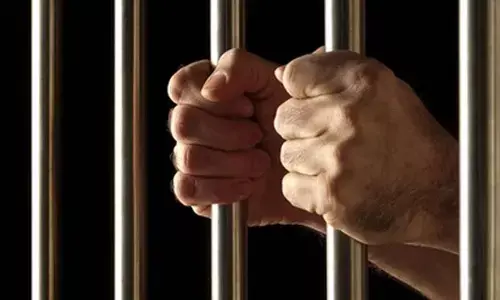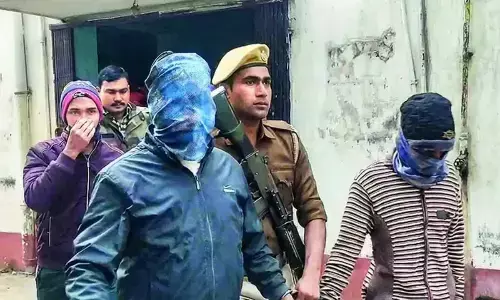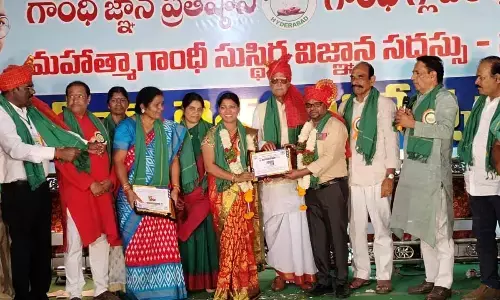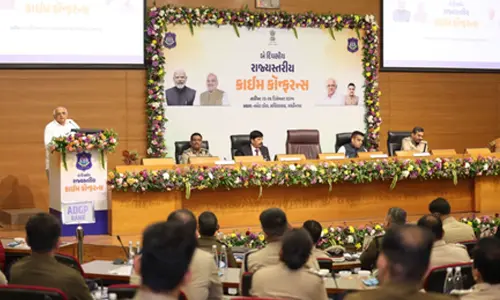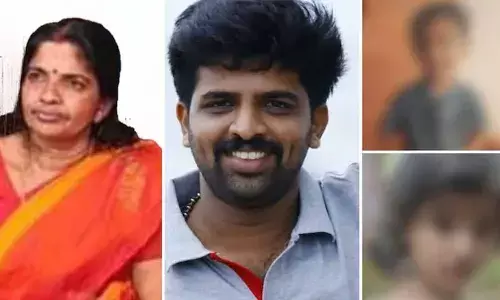What happened to the three accused of Gandhi murder?
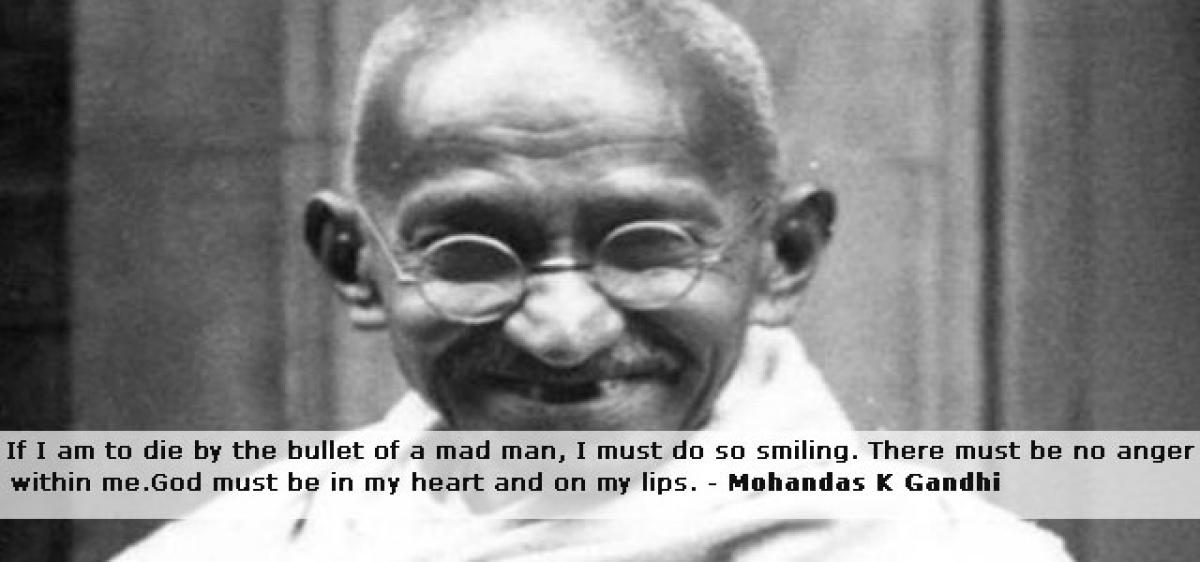
Hemantha Panda filed an RTI application, seeking a copy of FIR No 68/48 dated 30.1.1948, a copy of final charge-sheet issued by the Delhi Police, and a copy of the order to execute the accused Nathuram Godse in the case of assassination of the Father of Nation Mohandas Karamchand Gandhi. He claimed that he is a researcher and interested in studying the records pertaining to the assassination of Ma
An RTI plea sought two important documents, final charge-sheet issued by the Delhi police and the order of execution of Nathuram Godse. He stated the record shows three persons accused of assassination of Gandhi –Gangadhar Dahawate, Surya Dev Sharma and Gangadhar Yadav – were absconding, but nothing to show whether any efforts were made to apprehend them or whether the criminal case against them was closed, if so why
Hemantha Panda filed an RTI application, seeking a copy of FIR No 68/48 dated 30.1.1948, a copy of final charge-sheet issued by the Delhi Police, and a copy of the order to execute the accused Nathuram Godse in the case of assassination of the Father of Nation Mohandas Karamchand Gandhi. He claimed that he is a researcher and interested in studying the records pertaining to the assassination of Mahatma Gandhi.
None can deny the public interest in this historic event ending the life of father of a nation. The CPIO said that the appellant was asked to inspect the files at National Archives of India, and he was provided a copy of the charge-sheet and an FIR of Gandhi’s Assassination case. The appellant complained that he could not find two important documents, final charge-sheet issued by the Delhi police and the order of execution of Nathuram Godse.
If I am to die by the bullet of a mad man, I must do so smiling. There must be no anger within me. God must be in my heart and on my lips. Mohandas K Gandhi, 28 January 1948, two days prior to his assassination
He stated the record shows three persons accused of assassination of Gandhi –Gangadhar Dahawate, Surya Dev Sharma and Gangadhar Yadav – were absconding, but nothing to show whether any efforts were made to apprehend them or whether the criminal case against them was closed, if so why.
The appellant wanted to see the record containing the details about efforts of Delhi police to apprehend these three accused persons and reasons for not arresting them and stated that other two accused Dattatreya Parchure and Shankar Kistaiya were acquitted during the appeal.
The appellant submitted to the Commission that he wanted the copies of the documents concerned. The CPIO stated that they receive the records as sent for archives and cannot say whether final charge-sheet was missing or state reasons for absconding of accused or acquittals.
As per earlier records, the original FIR No. 68/1948 under section 302, IPC, has been deposited in the National Archives of India, which also possessed the original of the charge-sheet, whereas Delhi police informed the Commission earlier that they had only a photocopy of the FIR.
The perusal of records and contentions led the Commission to infer that the respondent authority could not say anything about the final charge-sheet or other details as sought by the appellant. They should have at least transferred the RTI request to the authorities concerned.
The CPIO represented to the Commission that they were under heavy pressure of RTI requests pertaining to files of Mahatma Gandhi, Netaji Subhas Chandra Bose and Vallabh Bhai Patel. She stated that frequent reference under RTI was causing difficulties in protecting the records. However, the records pertaining to accession of 600 princely states to India under leadership of Sardar Vallabh Bhai Patel and the records pertaining to Netaji were made available in the digitized form and accessible in the National Virtual Library Institute and National Science Centre.
She also said that most of the records available in archives can be accessed through its portal Abhilekh Patal. She also informed that Prime Minister Narendra Modi released several documents of Netaji Subhas Chandra Bose on 24.01.2016.
The accused are: Nathuram V Godse; Narayan D Apte; Vishnu R Karkare; Madanlal K Pahwa; Shankar Kistayya; Gopal V Godse; Vinayak D Savarkar; Dattatraya S Parchure; Gangadhar S Dandawate; Gangadhar Jadhav; and Suryadeo Sharma. The accused Digamber R Badge turned an approver.
The judgement was pronounced on February 10, 1949. Nathuram Godse and Narayan Apte were sentenced to be hanged. Vishnu Karkare, Madanlal Pahwa, Gopal Godse, Shankar Kistaiya and Dr Parchure were to suffer, inter alia, transportation for life. Vinayak Savarkar was acquitted. Digamber Badge was granted pardon and set free for having deposed against his co-accused.
The accused were put on trial at Peterhoff, Shimla, which housed the Punjab High Court at Simla. Vinayak Savarkar was acquitted and set free due to lack of evidence. The appellant and other sources stated that two accused, namely Dattatraya Parchure, and Shankar Kistaiya, were acquitted. As per the records available, Shankar Kistaiya and Dattatraya Parchure were sentenced to transportation for life.
However, Bombay High Court in Gopal Vinayak Godse vs The Union of India and Ors, decided on 6 August, 1969, AIR 1971 Bom 56, (1970) mentioned that: “In appeal, the Punjab High Court acquitted two more – Dr Parchure and Shankar Kistayya. The conviction and sentence of the five others was confirmed. Nathuram had appealed against his conviction on the charge of conspiracy only.
He neither challenged his conviction for murder nor the sentence of death passed on him. The statement made by him in Trial Court under Section 342 of the Code of Criminal Procedure was proscribed by the Government of India…Nathuram and Apte were executed in the Ambala Jail on the 15th November, 1949. Gopal Godse and another accused called Karkare were transferred from the Ambala Jail to Nasik Road Central Prison in Maharashtra on the 19th May, 1950.
Gopal Godse was thereafter transferred to the Aurangabad Central Prison. Gopal Godse filed several petitions in the Supreme Court praying that he be directed to be released. He was sentenced by the Trial Court on 10-2-1949 and his contention was that taking into consideration the remissions earned by him he was entitled to be released.
He was eventually released from jail on 13th October, 1964, during the pendency of one of such petitions, in which he was directed to be produced before the Supreme Court on the 19th October, 1964. He was arrested again on the 25th November, 1964 under the Defence of India Act. He was released from detention on the 30th November, 1965.”
The records pertaining to charge-sheet show that three accused were absconding as pointed out by the appellant. But the NAI cannot give any opinion or information about why they were not arrested etc. Appellant sought copy of ‘final chargesheet.’ The records did not show anything like primary or final, but there is one chargesheet and documents containing framing of charges by the Court, which are inspected by the appellant. NAI did not possess any of the jail records hence they could not provide a copy of order of execution of Nathuram Godse and another accused.
The Commission directed NAI to transfer the RTI to following public authorities:
a)The PMO for their information and necessary action to formulate appropriate policy to build archives of records regarding Mahatma Gandhi Assassination, investigation, trial, punishment, official correspondence, and action taken on the recommendations of JL Kapur Commission;
b)Ministry of Home Affairs, for records of investigation and prosecution of Mahatma Gandhi assassins (from Police), imprisonment and execution of accused (from Jail authorities), record containing reasons to acquittal of two accused in appeal and any other record from Mumbai or Pune or any other place where the investigation resulted in arresting accused etc, correspondence with Government of Bombay/ Maharasthra;
c)The Station House Officer, Tughlak Road Police Station, for case diaries or any other record showing investigation etc, including efforts to trace three absconding accused (if any of accused were absconding) in Gandhi Murder case;
d)The Registrar General of Supreme Court of India, for any judicial record on Gandhi Murder case from of any of courts; and
e)The Secretary General of Parliament of India, for complete record of Justice J L Kapur Commission including the original report on conspiracy to assassinate Mahatma Gandhi.
The CPIO of Ministry of Home Affairs, more particularly the Delhi Police, or Tughlak Road Police Station is directed to provide original records of investigation of Mahatma Gandhi Murder Trial such as investigation reports, case diaries or any other communication or correspondence they have, final charge sheet, if any, or any record showing efforts to arrest the accused Gangadhar Dahawate, Surya Dev Sharma and Gangadhar Yadav to the NAI for preservation under Archives, inspection of which the NAI may offer to the appellant.
(Based on decision dated 16.2.2017 in CIC/SH/A/2016/001055 Hemanta Panda v. PIO, M/o Culture)








